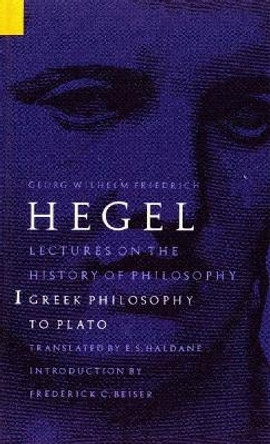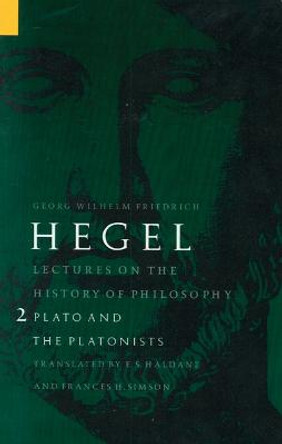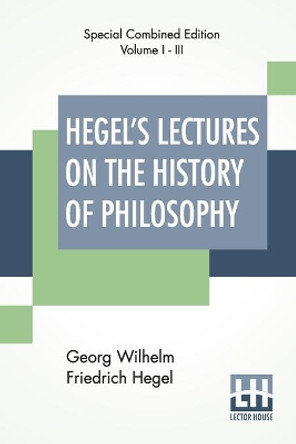G. W. F. Hegel (1770-1831), the influential German philosopher, believed that human history was advancing spiritually and morally according to God's purpose. At the beginning of Lectures on the History of Philosophy, Hegel writes: "What the history of Philosophy shows us is a succession of noble minds, a gallery of heroes of thought, who, by the power of Reason, have penetrated into the being of things, of nature and of spirit, into the Being of God, and have won for us by their labours the highest treasure, the treasure of reasoned knowledge." Volume 3 of Lectures on the History of Philosophy, titled Medieval and Modern Philosophy for this Bison Books edition, begins with a survey of the philosophy of the middle ages, leaving the pagan world for the Christian and extending to the sixteenth century A.D. Hegel shows how scholastic theology and philosophy developed through the efforts of Peter Lombard, Thomas Aquinas, and others. Hegel's treatment of the modern period of philosophy focuses on Bacon, Descartes, Spinoza, Locke, Hobbes, Leibnitz, Berkeley, Hume, Kant, and Fichte.
Reviews"Hegel's Geschichte der Philosophie was one of the grand products of the renaissance in historical learning that took place in early nineteenth-century Germany. . . . Hegel remains relevant today for his recognition that any self-critical philosophy must include a knowledge of its own history. A self-aware philosopher, Hegel firmly believed, knew where his ideas came from and their social and cultural context. . . . This is still the only available translation of all three volumes of Hegel's history."-Frederick C. Beiser,
The Fate of Reason: German Philosophy from Kant to Fichte"[Hegel] is, without doubt, the Aristotle of our post-Renaissance world."-J. N. Findlay,
Hegel: A Re-examinationBook InformationISBN 9780803272736
Author Georg Wilhelm Friedrich HegelFormat Paperback
Page Count 571
Imprint University of Nebraska PressPublisher University of Nebraska Press
Weight(grams) 624g










